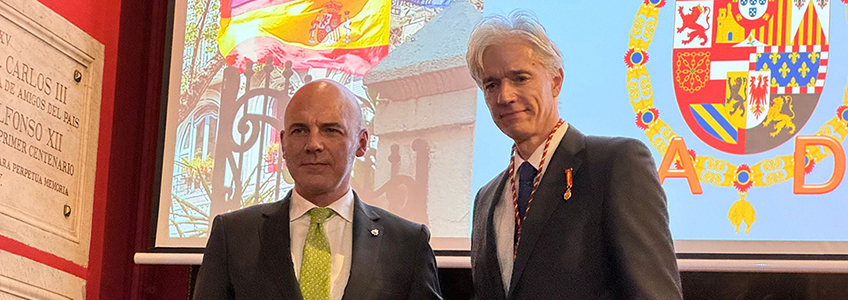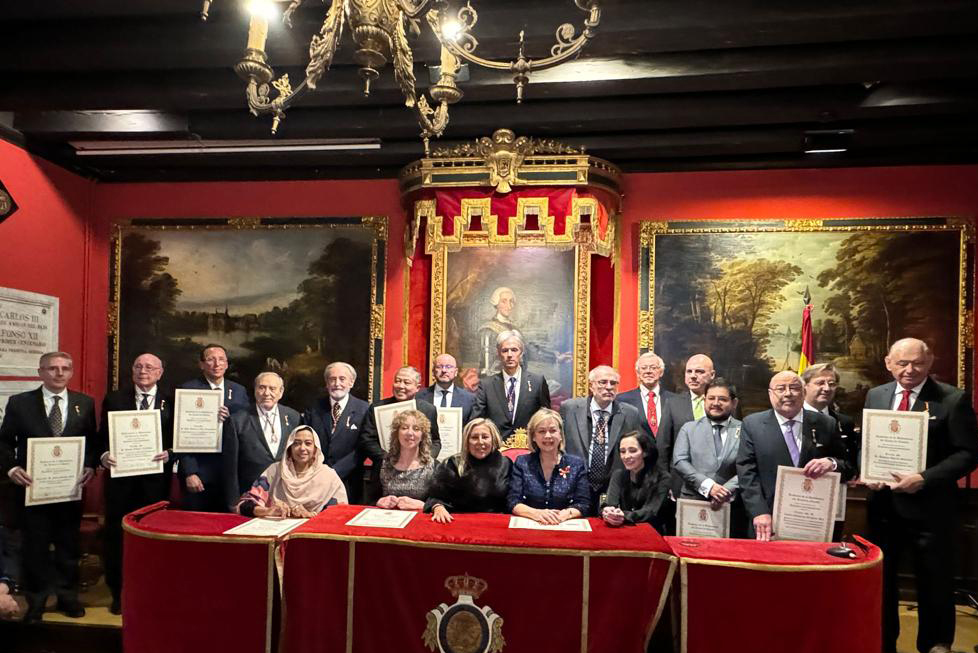On November 21, the Director of Institutional Relations of the Iberoamerican University Foundation (FUNIBER) and of the Cátedra FUNIBER de Estudios Iberoamericanos y de la Iberofonía (FUNIBER Chair of Ibero-American Studies and Iberophony), Dr. Frigdiano Álvaro Durántez Prados, was introduced into the Academia de la Diplomacia (Academy of Diplomacy), International Relations, and Protocol as a full member of this prestigious Spanish institution.
Dr. Durántez was already a part of the Academia de la Diplomacia since 2015, but as an honorary academician. According to Santiago Velo de Antelo, executive chairman of this institution, in this solemn ceremony, he was admitted as an honorary member due to the institutional responsibilities that Durántez held as advisory member of Studies and Reports of the Casa de S.M. el Rey de España (Royal Household of His Majesty the King of Spain), which made this specific profile advisable. Durántez was recognized on that occasion for his work in the area of Hispanic geopolitics and as a pioneer and promoter of pan-Iberism, the current that advocates the articulation of a multinational space of Spanish- and Portuguese-speaking countries —the Iberophone countries— from all continents, without geographical exceptions.
In fact, the Academia de la Diplomacia and FUNIBER signed a collaboration agreement in October 2022 to promote institutional cooperation in the Iberophone field.
On this occasion, the new full member referred briefly to the question of pan-Iberianism and iberophony but focused his lecture on the topic “Universal Governance and Civilization,” a subject on which he had already lectured in previous years at institutions such as the Autonomous University of Lisbon (Revista Diplomacia Siglo XXI, No. 100, December 2017, pp. 28-34), with which the Universidad Europea del Atlántico (European University of the Atlantic) has a collaboration agreement. In Dr. Durántez’s opinion, the world of Iberophony, which is the focus of FUNIBER’s educational, scientific, and cultural action, can make a fundamental contribution to the articulation of a universal community and to its governance.
Each member occupies a Chair named after a diplomat or a significant figure in the universal history of Spain. Dr. Durántez chose Gabriel de Castilla’s name, the Spanish admiral who, in 1603, departing from the Viceroyalty of Peru and the General Captaincy of Chile, entered the southern latitudes until reaching 64 degrees south, being recognized as the proto-discoverer of Antarctica. F. Álvaro Durántez made an analogy with the condition of the Antarctic continent as a global common good whose management and balance will be essential in a structured universal Community.
At the ceremony, which took place at the historic Torre de Los Lujanes (Tower of Los Lujanes) in Madrid, headquarters of the Real Sociedad Económica Matritense de Amigos del País (Royal Matritense Economic Society of Friends of the Country), corresponding and honorary academicians were appointed from among members of the diplomatic corps accredited in Spain and other personalities. Monsignor Bernardito Auza, the dean of the diplomatic corps, archbishop of Filipino nationality, and apostolic nuncio of His Holiness, spoke on behalf of all the new academicians.


